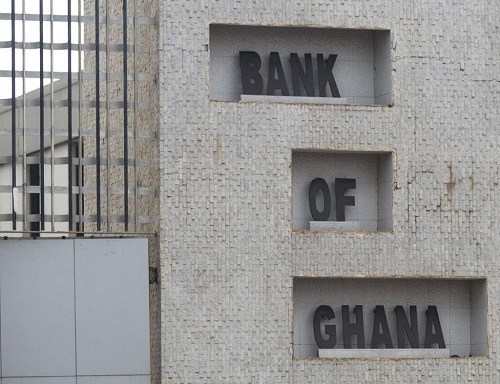The central bank has, for the third consecutive time, maintained the country’s policy rate – citing risks to macroeconomic stability brought on by increments in utility tariffs, subdued business sentiments, and the slow pace of fiscal consolidation as reasons.
In a press statement released by the Monetary Policy Committee (MPC) of the Bank of Ghana last Friday, the policy rate was, again, maintained at 16 percent.
“On the domestic front, economic activity remains strong and broad-based. Although there are some downside risks to growth, mainly from subdued business sentiments and increase in utility tariff, the Committee, however, observed that the pace of fiscal consolidation has slowed down – mainly reflecting gaps in revenue mobilisation while the pace of spending has increased. This could pose risks to macroeconomic stability if not addressed.”
“The Committee noted that while these risks remain, the Bank’s core mandate of price stability appears to be on track. Inflation has remained within the target band in the last 15 months.
“The Committee assessed that the pass-through from exchange rate depreciation is waning, and the underlying inflationary pressures as well as inflation expectations are well-anchored. Under the circumstances, the Monetary Policy Committee decided to maintain the policy rate at 16 percent,” the MPC statement noted.
This decision however does not come as a surprise, as various economic analysts and research organisations predicted the MPC to, at worst, maintain the policy rate ahead of the announcement. The Economist Intelligence Unit (EIU), for example, said in its June Country Report for Ghana that it does not expect the MPC to reduce the policy rate for the rest of the year, giving risk to inflation increasing in the future.
“Monetary policy in Ghana has historically been volatile. In January 2019, the monetary policy committee of the Bank of Ghana (BoG) reduced the policy rate by 100 basis points from 17 percent to 16 percent. Inflation is forecast to remain elevated in 2019, moderating slightly to 9.6 percent from 9.8 percent in 2018, suggesting that rates will not be cut further over the year,” the EIU report said.
Senior Economist at the University of Ghana, Dr. Ebo Turkson, also predicted ahead of the announcement that the strength of the cedi will play a key role as to whether the Bank of Ghana reduces or maintains the policy rate.
“The strength of our cedi against the dollar and other major trading currencies will also be a determining factor, so it is not just the inflation. Of course, inflation is the most important of them; once it is declining, you should expect a policy rate cut. But in the worst-case scenario, the policy rate will be maintained,” he told the B&FT in an interview.
The decision to maintain the rate, however, comes as bad news to the private sector as it means lending rates are not expected to come down any time soon, given that the policy rate plays a major role in determining the Ghana Referencing Rate— which is the base rate that defines banks’ lending rates.
Source: B&FT Online





